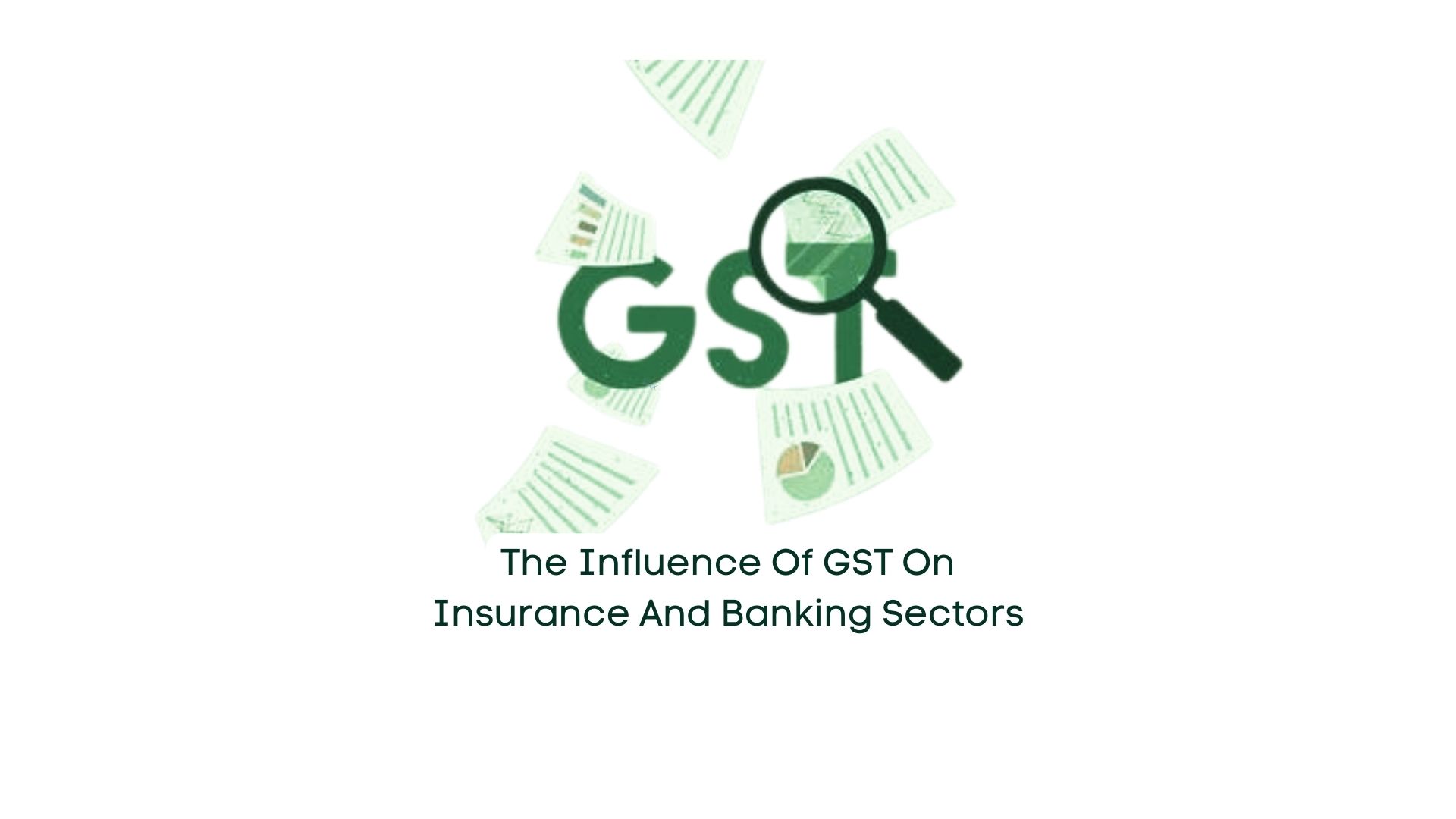
29 Feb The Influence of GST on Insurance and Banking Sectors

In the aftermath of the implementation of GST, the insurance and banking sectors witnessed significant changes, affecting both policyholders and financial institutions. The rise in GST rates from 15% to 18% as of July 1, 2017, resulted in increased expenses for individuals and businesses alike.
Impact on Insurance Sector
Under the purview of GST, various facets of insurance, including life and health insurance, experienced a shift in taxation. The premiums for policies such as term insurance plans, ULIPs, and endowment policies were subject to the revised GST rates. Previously, service tax applied at different rates for each type of insurance. For instance, ICICI Prudential Life Insurance levied service tax at varying rates for different policies. However, with the advent of GST, a uniform tax rate of 18% replaced the previous structure, leading to an overall increase in premiums.
The implications of GST on the insurance sector extended beyond premium adjustments. Both existing and new policyholders faced higher premium amounts, as insurers passed on the increased tax burden to consumers. Moreover, insurers encountered heightened compliance and administrative costs due to the necessity of managing increased GST returns and the altered taxability of inter-branch services.
General Insurance and Exemptions
Similarly, the general insurance segment, encompassing categories like fire, marine, and car insurance, also felt the impact of GST. The transition from a 15% tax rate to 18% resulted in elevated premiums for policyholders. While corporate policyholders could benefit from input tax credit on GST paid for general insurance, individuals availing life and health insurance policies were not eligible for such credits, given the personal nature of these insurances.
It’s noteworthy that certain life insurance schemes provided by the government, such as Janashree Bima Yojana and Aam Aadmi Bima Yojana, were exempted from GST. Additionally, policies like Varishtha Pension Bima Yojana and Pradhan Mantri Jeevan Jyoti Bima Yojana also enjoyed this exemption.
No Claim Bonus and GST Clarification
The 48th GST Council meeting brought forth clarifications regarding the applicability of GST on ‘No Claim Bonuses’ through Circular No. 186/18/2022-GST. The circular delineated that such bonuses, offered by insurance companies as rewards or discounts to customers with no claims during the policy period, would not be subjected to GST. Instead, they were considered discounts and deducted from the premium without any GST implications.
Impact on Banking Services
Banking services, previously taxed at 15% under service tax, saw an increment to 18% under GST. This increase translated to higher costs for customers utilizing banking services, including transaction charges on cash withdrawals from ATMs and branches. Banking institutions, while passing on the tax burden to customers, faced amplified administrative and compliance responsibilities. Internal transactions among branches became taxable under GST, adding to paperwork and operational expenses.
Conclusion
In conclusion, the implementation of GST brought about significant changes in both the insurance and banking sectors. While policyholders experienced increased premiums, financial institutions navigated through heightened compliance and administrative burdens. The restructuring of tax rates under GST underscored the need for stakeholders to adapt to evolving regulatory frameworks and their ensuing implications on the financial landscape.


No Comments